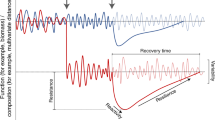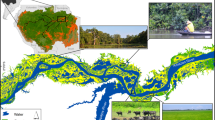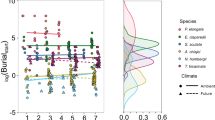Abstract
ECOLOGISTS have become increasingly interested in general properties of communities and the relationships among species diversity, biomass, productivity, dominance and stability. Both verbal1 and mathematical2 models have been proposed to relate these properties. These models are important as initial generalizations in a developing predictive theory of ecology. The available data, however, are largely from planktonic systems and these data are contradictory. For example, Margalef3 has concluded from his extensive studies of marine systems that productivity and dominance are inversely related to stability and diversity. Increasing species diversity in the community leads to decreased dominance and productivity but increased stability. Patten4, however, has concluded that “high productive capacity is associated with high diversity” in summer plankton communities of Virginia's York River. Studies of grasslands on California's San Francisco peninsula, reported here, provide the first rigorous development of the relationships among diversity, dominance, productivity and stability of terrestrial communities. This report extends Margalef's general model to terrestrial systems and provides strong support for it as a valid description of general properties of communities.
This is a preview of subscription content, access via your institution
Access options
Subscribe to this journal
Receive 51 print issues and online access
$199.00 per year
only $3.90 per issue
Buy this article
- Purchase on Springer Link
- Instant access to full article PDF
Prices may be subject to local taxes which are calculated during checkout
Similar content being viewed by others
References
Margalef, R., Amer. Naturalist, 97, 357 (1963).
Leigh, E. G., Proc. US Nat. Acad. Sci., 53, 777 (1965).
Margalef, R., in Primary Productivity in Aquatic Environments (edit. by Goldman, C. R.), 355 (University of California Press, Berkeley, 1965).
Patten, B. C., Science, 140, 894 (1963).
McMillan, C., Ecol. Monographs, 26, 177 (1956).
White, K. L., Ecology, 47, 865 (1966).
Heady, H. F., Ecology, 39, 402 (1958).
Levy, E. B., and Madden, E. A., N.Z. J. Agric., 46, 267 (1933).
Snedecor, G. W., Statistical Methods Applied to Experiments in Agriculture and Biology (Iowa State College Press, Ames, 1956).
Woodwell, G. M., Science, 156, 461 (1967).
Author information
Authors and Affiliations
Rights and permissions
About this article
Cite this article
MCNAUGHTON, S. Relationships among Functional Properties of Californian Grassland. Nature 216, 168–169 (1967). https://doi.org/10.1038/216168b0
Received:
Issue Date:
DOI: https://doi.org/10.1038/216168b0
This article is cited by
-
Long-term succession characteristics and driving factors of zooplankton communities in a typical subtropical shallow lake, central China
Environmental Science and Pollution Research (2023)
-
Ecological evaluation of marine macroalgal communities on five islands of Korea in the Yellow Sea
Acta Oceanologica Sinica (2023)
-
Temperature, nutrients and planktivorous fish predation interact to drive crustacean zooplankton in a large plateau lake, southwest China
Aquatic Sciences (2023)
-
Tidal water exchanges can shape the phytoplankton community structure and reduce the risk of harmful cyanobacterial blooms in a semi-closed lake
Journal of Oceanology and Limnology (2022)
-
Experimental observation on the effects of bighead carp (Hypophthalmichthys nobilis) on the plankton and water quality in ponds
Environmental Science and Pollution Research (2022)
Comments
By submitting a comment you agree to abide by our Terms and Community Guidelines. If you find something abusive or that does not comply with our terms or guidelines please flag it as inappropriate.



